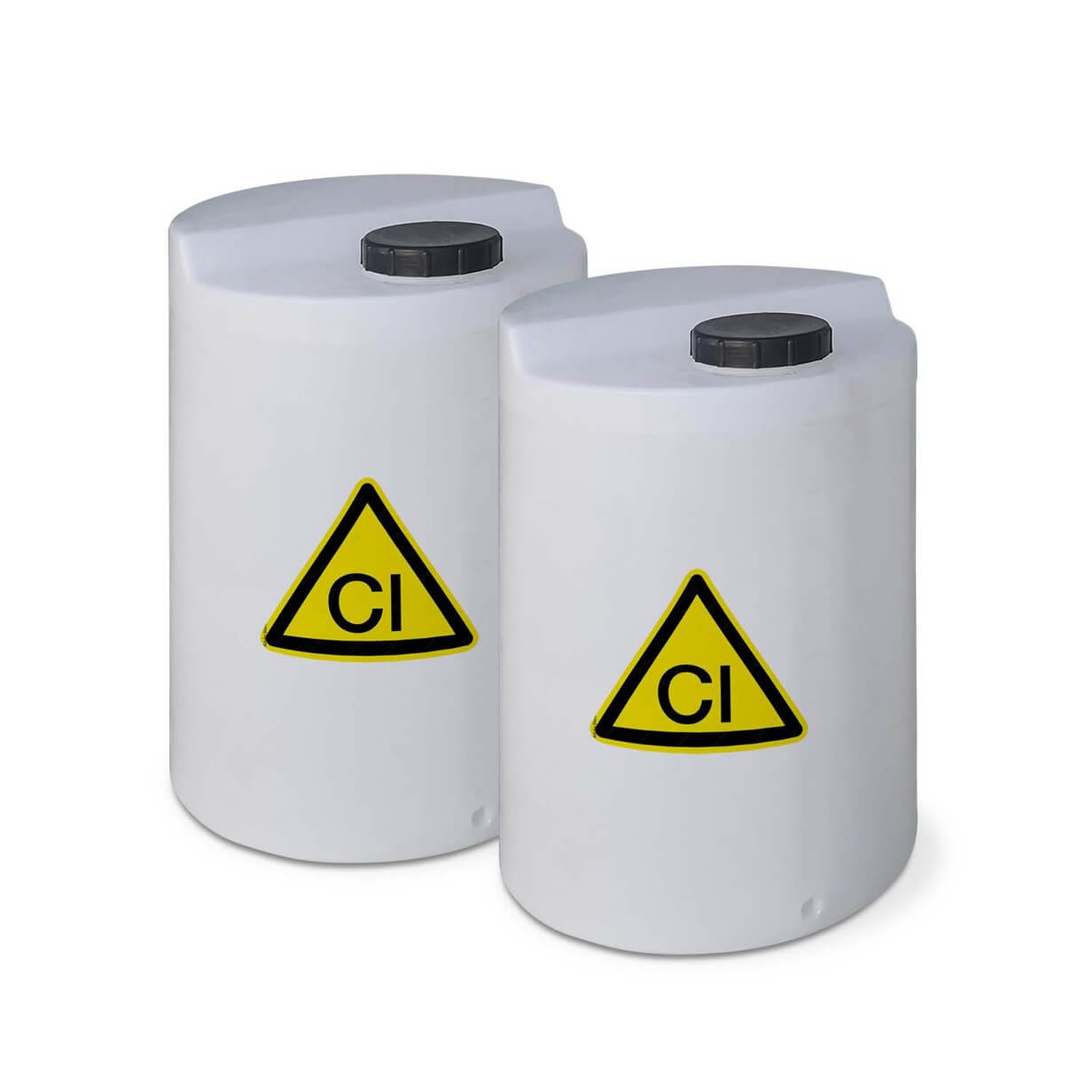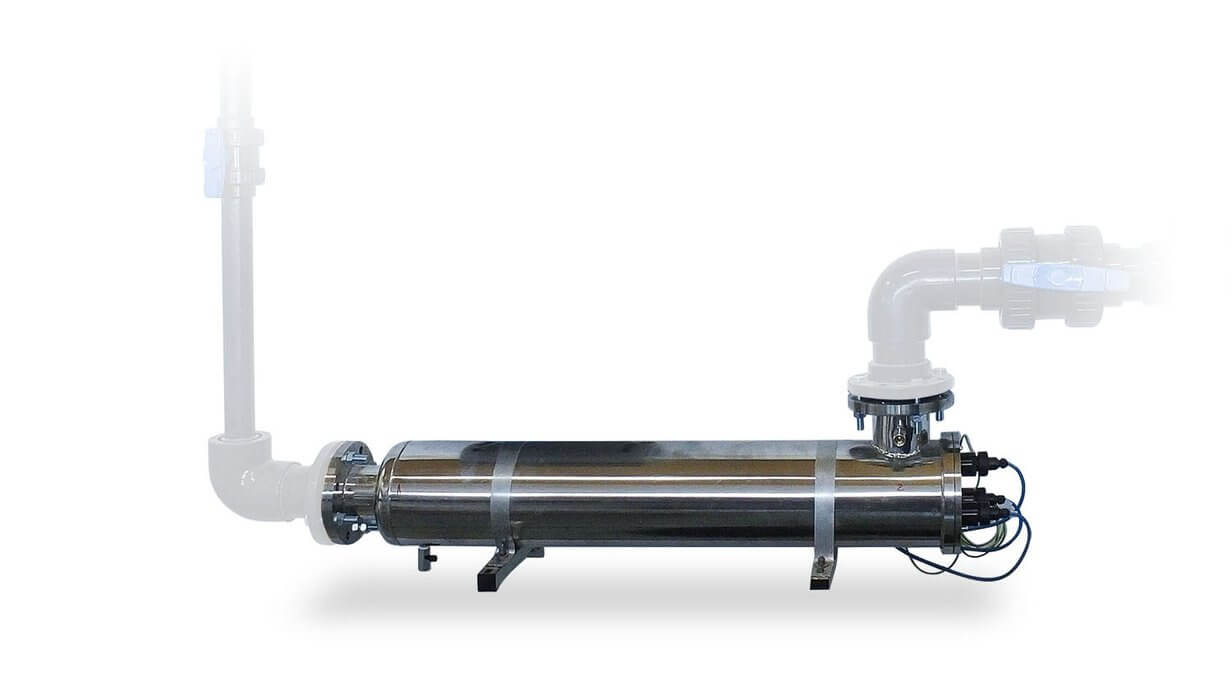ATB Hygienization
In wastewater treatment, disinfection, also known as hygienization, inactivates pathogens and thus additionally sterilizes the treated wastewater. Against the background of increasing water pollution worldwide and at the same time growing demand for hygienically safe water resources, the disinfection of treated wastewater is gaining in importance. Since a high number and variety of pathogens are still present in wastewater even after biological wastewater treatment, intended water reuse generally requires prior disinfection of the treated wastewater.
UV-disinfection
- Mode of operation: The treated and suspension-free water is passed through the UV reactor, where the remaining microorganisms in the water are inactivated. UV disinfection is the simplest and one of the most effective methods to remove microorganisms or possible pathogens from water. Equipped with powerful UV lamps, high quality stainless steel reactor and effective control unit with microprocessor and with operating hours counter, alarm indication and forwarding, free contact for external pump start, event log and optional monitoring and indication of radiation intensity and temperature in the UV chamber.
- Range: Available up to 1,300 m³/h
- Material: UV reactor made of V2A and V4A
- Applications: Drinking water treatment, industrial water treatment, waste water treatment of municipal and medium-sized industrial applications
- Your advantages:
✔ Lamps with very long lifetime, radiation > 400 J/m²
✔ Complex electronic monitoring unit with several
monitoring options
✔ Long lifetime of the reactor
✔ Simple installation and maintenance

Chlorination
- Mode of operation: Chlorination is the addition of chlorine or chlorine compounds to water. For the disinfection of treated wastewater, chlorine is available for dosing in principle as chlorine gas, as liquid sodium hypochlorite or as solid calcium hypochlorite. All three forms of chlorine dosing lead to the formation of the same active substance in combination with water.
Range: Not specified
- Material: PE and corrosion resistant plastics
- Applications: Drinking water treatment, industrial water treatment, waste water treatment
- Your advantages:
✔ Simple installation and maintenance
✔ Easy retrofitting to existing wastewater treatment plants
✔ Low investment costs
